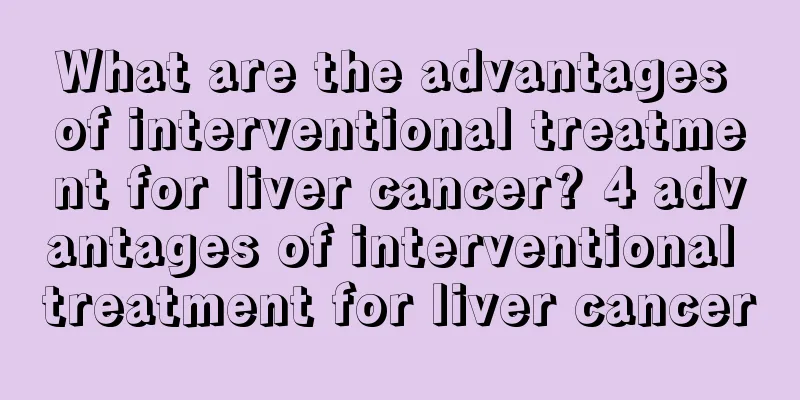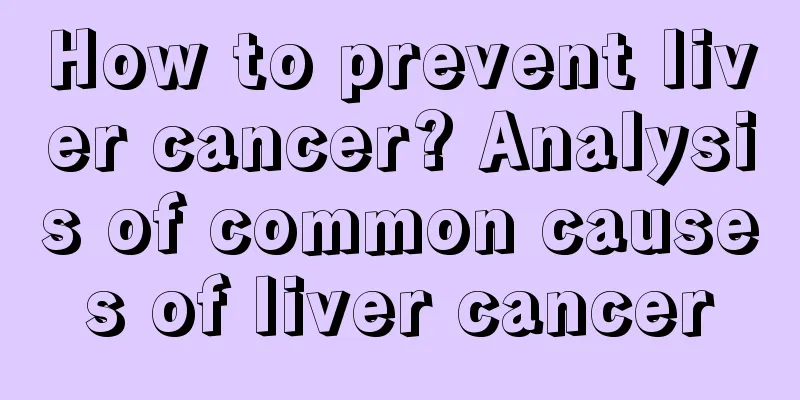What are the advantages of interventional treatment for liver cancer? 4 advantages of interventional treatment for liver cancer

|
Treatments for liver cancer include surgical and non-surgical treatments. Surgery is mainly for early-stage liver cancer, which used to refer to tumors smaller than 5 centimeters, but now usually refers to patients with tumors smaller than 3 centimeters. For these patients, surgical treatment is very effective. For patients who cannot undergo surgical resection, that is, patients with advanced tumors, or patients with early-stage tumors but with medical diseases, such as heart disease or hypertension, and patients with severe liver cirrhosis, who cannot withstand surgery, other non-surgical treatment methods can be used. Among non-surgical treatment methods, interventional treatments are currently more mature. Interventional therapy has very important advantages compared with systemic chemotherapy: One is local drug administration for interventional treatment. As mentioned earlier, the femoral artery is inserted into the hepatic artery, and then chemotherapy drugs or embolic agents are injected into the hepatic artery. In this way, the drug concentration in the local tumor is very high, which is equivalent to directly putting the drug into the blood supply artery of the tumor. If the drug is administered peripherally, that is, systemic chemotherapy, the drug passes through the systemic circulation and then reaches the liver. Obviously, the former makes the local tumor drug concentration very high. Second, interventional therapy can be used for embolization. Hepatocellular carcinoma has a rich blood supply, and embolization therapy can thrombose the tumor's blood supply artery. After thrombosis, the tumor lacks blood supply and nutrition. Without nutrition, the tumor will undergo necrosis. Third, because we inject the drug into the blood supply artery of the tumor, the systemic toxic side effects of the patient are significantly reduced, and are not as severe as the toxic side effects of systemic chemotherapy. Fourth, patients recover quickly and the procedure can be repeated, which is an obvious advantage of interventional therapy. |
>>: How to prevent liver cancer? Experts on liver cancer prevention give 4 suggestions
Recommend
What causes throat cancer
In recent years, laryngeal cancer has become one ...
What to eat for faster recovery after gastric cancer surgery
Gastric cancer surgery will remove part of the ga...
Is hepatitis E contagious
Hepatitis E is a common disease during the rainy ...
Pharmacology and Clinical Practice of Traditional Chinese Medicine
We all know that people who study medicine have t...
Are duck eggs cool in nature?
Salted duck eggs are a delicacy, especially durin...
What are the factors that induce lung cancer
Lung cancer is a tumor disease with a high incide...
What should I pay attention to when wearing removable dentures
The most annoying thing in life is dental problem...
What are the early symptoms of lung cancer? Several clinical symptoms of early lung cancer
The incidence of lung cancer in my country is rel...
What is the eyelash growth cycle
Our facial features are given by our parents at b...
How to protect colon cancer patients after surgery
In the early stage after surgery, it is advisable...
What are the massage therapies for ovarian cancer?
With the progress of the times, people's livi...
What material is best for back tooth crowns
The chewing function of teeth in the mouth is ver...
After interventional surgery for advanced liver cancer, metastasis to the adrenal glands
After interventional surgery for advanced liver c...
The role of bone nails
If they don’t understand, many people don’t know ...
Can small cell lung cancer be cured by taking medicine?
Can small cell lung cancer be cured by taking med...









